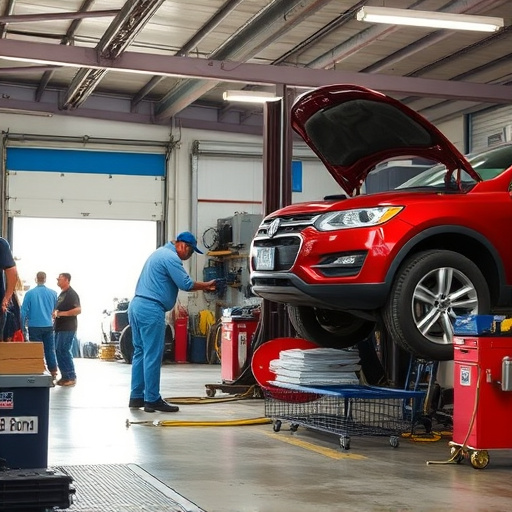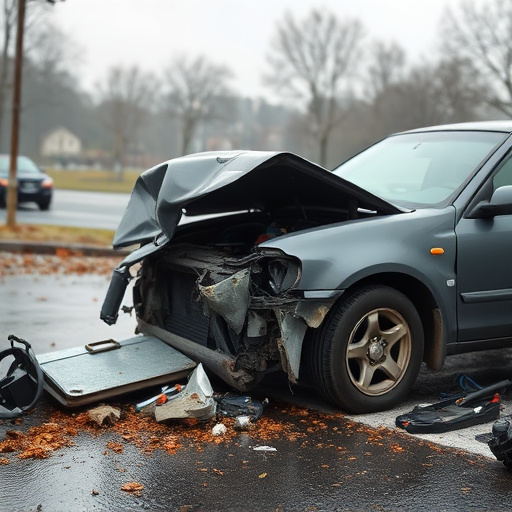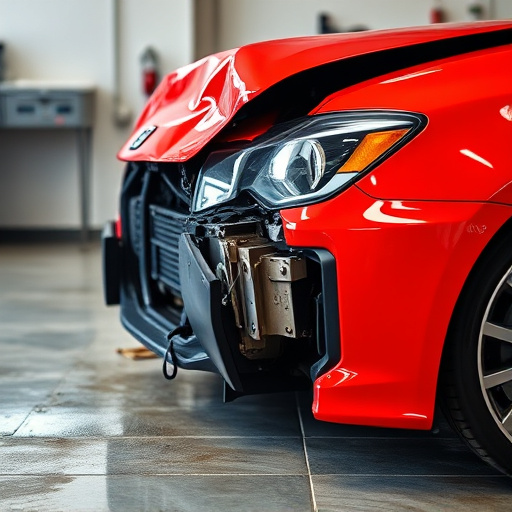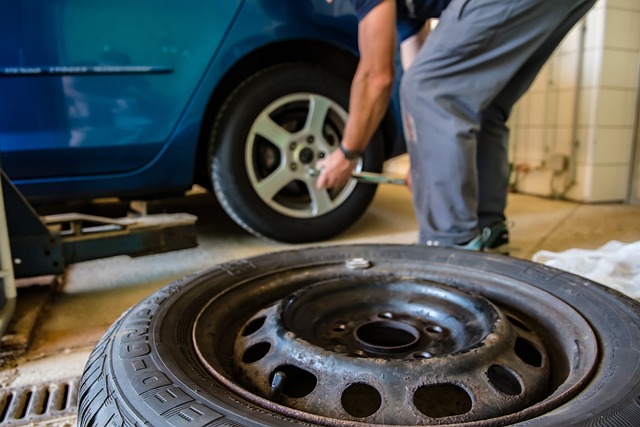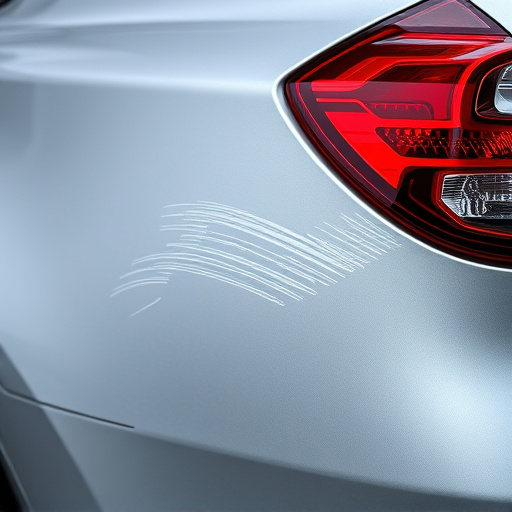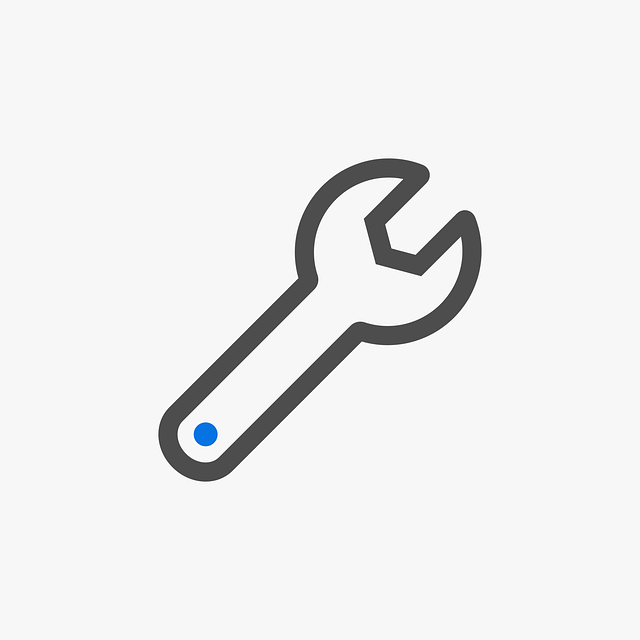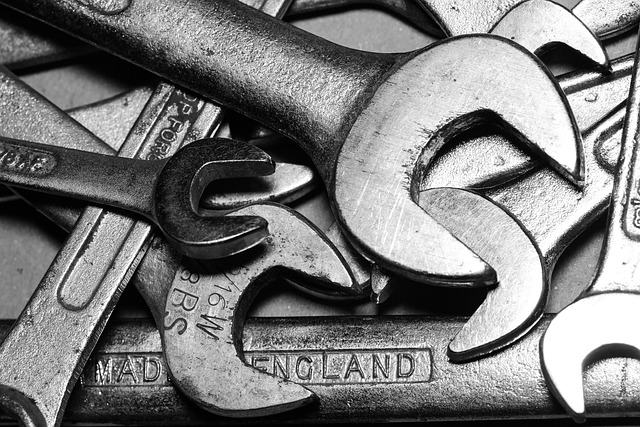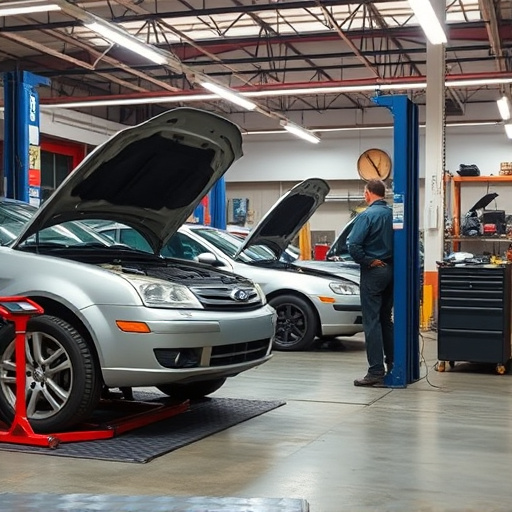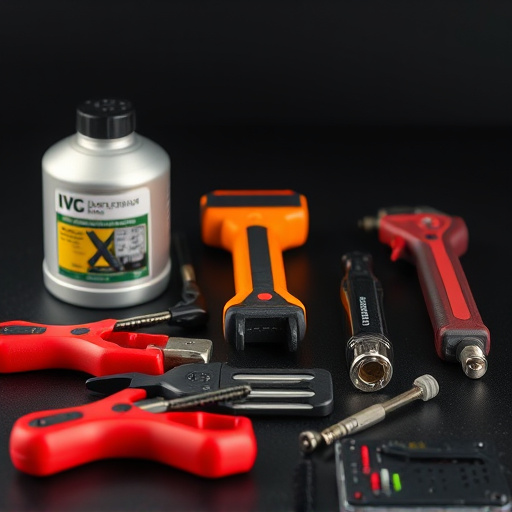Auto body shops should assess their operations, location, and reputation to determine insurance needs. Key risks like property damage, personal injury, and legal expenses must be mitigated through comprehensive coverage. Regular policy reviews ensure compliance with evolving regulations and shifting business dynamics, safeguarding against claims and maintaining customer trust.
Managing auto body shop insurance is crucial for ensuring business continuity and financial protection. This comprehensive guide explores best practices for navigating the complex landscape of auto body shop insurance needs. From assessing your unique requirements to selecting suitable coverage options, staying compliant with regulations, and regularly reviewing policies, these steps are essential to safeguard your business against unexpected risks. By implementing these strategies, you can minimize disruptions and foster a resilient operation.
- Assessing Auto Body Shop Insurance Requirements
- Selecting Suitable Coverage Options
- Staying Compliant and Reviewing Policies Regularly
Assessing Auto Body Shop Insurance Requirements

Every auto body shop, whether it’s a small, local business or a large chain, needs to carefully assess its insurance requirements to ensure adequate protection against potential risks and liabilities. This process involves several key steps. First, evaluate the specific nature of your operations. Consider factors like the types of cars you work on, the extent of repairs you perform (from minor dent removal to full car collision repair), and whether you offer additional services such as paintless ding repair or custom modifications. Each service type carries its own set of potential risks, from equipment malfunctions to workplace accidents involving heavy machinery.
Next, think about your facility’s location and the surrounding area. Is it in a high-crime district where theft or vandalism might be more prevalent? This can impact your needs for property damage coverage and business interruption insurance. Additionally, consider your shop’s reputation and the type of clients you attract—whether they are primarily insurance company referrals, walk-in customers, or fleet owners. Your risk profile will influence both the cost and scope of your auto body shop insurance policy.
Selecting Suitable Coverage Options

When selecting auto body shop insurance coverage options, it’s essential to consider the specific needs and risks associated with providing vehicle repair services. An ideal policy should encompass comprehensive protection against various liabilities, including property damage, personal injury, and legal expenses. Given the nature of auto collision centers and automotive restoration work, ensuring adequate coverage for both on-site operations and finished vehicles is paramount.
Business owners must evaluate potential risks like equipment failure, accidental damage to client vehicles during repair processes, or claims arising from employee negligence. Tailoring insurance plans to cover these scenarios guarantees that an auto body shop can navigate challenges smoothly and maintain financial stability. The right coverage options allow business owners to focus on delivering high-quality vehicle repair services without constant worry about unexpected financial burdens.
Staying Compliant and Reviewing Policies Regularly

Staying compliant with insurance regulations is paramount for any auto body shop. Regular policy reviews ensure that the coverage aligns with the evolving needs of the business and complies with legal requirements. An automotive body shop’s risks can change over time, influenced by factors like new technologies, customer demands, and industry standards. For instance, as the demand for eco-friendly repairs grows, shops might need to update their policies to cover the specialized equipment or training required for these services.
By conducting routine reviews, business owners can identify gaps in coverage and adjust their auto body shop insurance accordingly. This proactive approach not only safeguards against potential claims but also ensures that the shop is prepared for any unforeseen circumstances, promoting smooth operations and peace of mind for both the business and its customers, including those seeking auto repair services nearby.
Managing auto body shop insurance effectively involves a combination of thorough assessment, informed selection, and regular review. By understanding your specific needs and staying compliant with industry standards, you can safeguard your business from unexpected risks and ensure seamless operations. Prioritize assessing your requirements, choosing suitable coverage options, and maintaining up-to-date policies to mitigate potential liabilities and foster long-term success in the competitive auto repair landscape.
